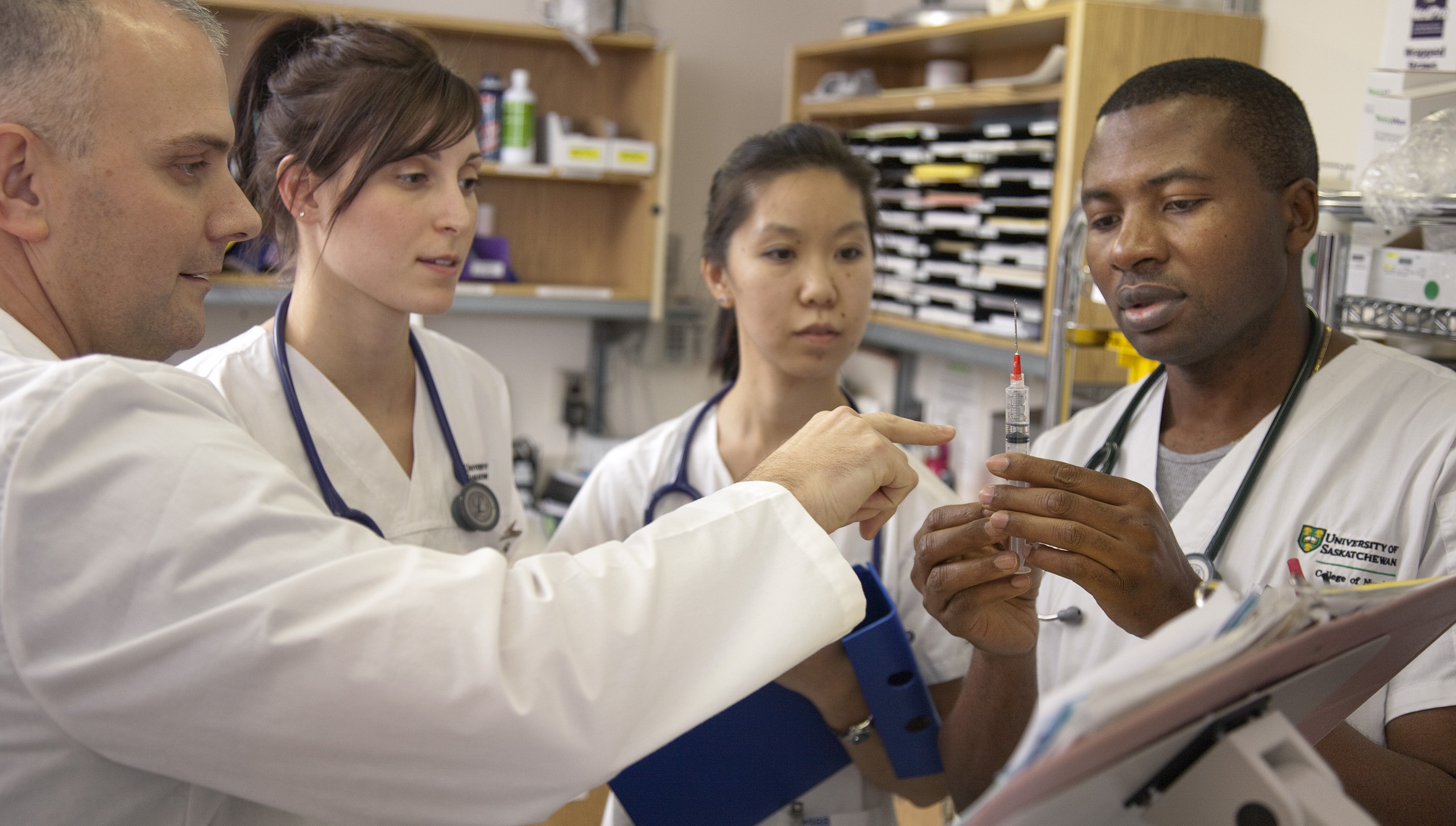U of S launches Regina campus for nursing program
The University of Saskatchewan has opened a new campus in Regina for students in the College of Nursing, giving them the option to study where they live.
By Kris Foster "We are very excited the U of S will have a modern teaching facility in Regina," said Lorna Butler, dean of the College of Nursing. "We are thrilled to welcome our first class of nursing students to our Regina campus this September."
"We are very excited the U of S will have a modern teaching facility in Regina," said Lorna Butler, dean of the College of Nursing. "We are thrilled to welcome our first class of nursing students to our Regina campus this September."The new Regina campus builds on the university's long-standing tradition of delivering educational programming to communities throughout Saskatchewan, explained Brett Fairbairn, provost and vice-president academic at the U of S.
"We are the University of Saskatchewan and we know how important it is to offer students the opportunity to learn in communities throughout our province. It is particularly important for Aboriginal students. For many years we have worked with regional colleges and other post-secondary educational institutions to enable this," Fairbairn said, adding that U of S students can complete their entire Bachelor of Science in Nursing (BSN) degree without leaving their home communities in La Ronge, Ile-a-la-Crosse, Prince Albert, Saskatoon and now Regina.
Learning where you live, or distributed learning, he continued, is particularly important in fields of health care in which professionals are trained to meet the needs of urban, rural and remote communities. It's an approach that has been very successful in the training and education of students in the U of S College of Medicine, which has space for teaching in both the Regina General Hospital and the Regina Centre Crossing.
Many partners throughout the province, Saskatchewan Academic Health Sciences Network, Regional Health authorities and the Government of Saskatchewan, particularly the Ministry of Advanced Education and the Ministry of Health, have supported this project, and in the process have strengthened the universities' capacity to deliver distributed learning programming.
The distributed learning approach means "students are exposed to issues at the community level and they are involved in research that benefits the community," Fairbairn said. The distributed learning approach also aligns with the areas of focus outlined in Promise and Potential, our third integrated plan.
"To offer this training we need to continue to develop programming in communities throughout our province. By doing this, we not only build on a community approach to education, but also address the growing need for health-care professionals."
The new Regina nursing campus, located at 4400 4th Avenue, on the corner of 4th and Lewvan Drive, is part of a larger property and is currently undergoing renovations. The campus will feature a lecture theatre, two classrooms, a number of break out rooms, a variety of offices for staff, faculty, research and the Native Access Program to Nursing, a boardroom, a nursing skills practice lab that also provides for simulation practice related to student's clinical experience in complex care settings, a student learning commons and a graduate student mezzanine. The facility will also be equipped with state-of-the-art technology to assist the College of Nursing with the distributed learning model.
The U of S College of Nursing now has the capacity to admit 345 undergraduate students throughout the province each year. The U of S BSN degree is a four year program, consisting of a pre-professional first year, followed by three years of nursing education. The first graduating class from the nursing program at the Regina campus is expected in 2015.

